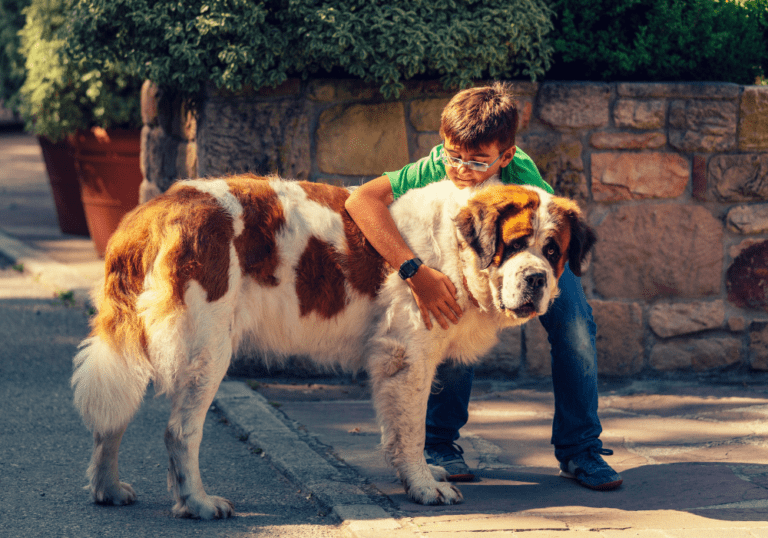Common Health Problems in Large Dog Breeds

Large dog breeds bring immense joy and companionship to our lives, but their size can also predispose them to certain health issues. Understanding these common health problems can help you provide the best care for your beloved pet. Here’s a closer look at some of the most prevalent health conditions in large dogs and how you can manage them.
Entropion
Entropion is a condition where the eyelids fold inward, causing the eyelashes to rub against the cornea. This issue is common in large dogs and usually becomes noticeable by the time the dog is one year old. While it may seem like a cosmetic concern, entropion can lead to painful corneal ulcers and scarring, potentially impairing your dog’s vision.
Symptoms:
- Red or watery eyes
- Discharge or pus on the eyelids
Treatment:
Treatment options may include antibiotic eye drops for ulcers and artificial tears to keep the eyes moist. In more severe cases, surgery may be necessary to correct the eyelid position.
Dysplasia
Dysplasia, particularly hip and elbow dysplasia, is a genetic condition that affects the joints of larger dog breeds. This happens when the bones in the joint do not fit together properly, leading to pain and mobility issues.
Symptoms:
- Limping or stiffness
- Difficulty climbing stairs
- Change in gait or decreased activity levels
Treatment:
Maintaining your dog’s ideal weight is crucial, as excess weight can exacerbate joint stress. Glucosamine supplements may help alleviate pain, and severe cases may require surgical intervention.
Bloat
Bloat, or gastric dilatation-volvulus (GDV), is a critical condition that occurs when the stomach fills with air and twists, trapping gas and preventing blood flow. Certain large breeds, including Great Danes and St. Bernards, are more susceptible to this life-threatening condition.
Symptoms:
- Swollen abdomen
- Unsuccessful attempts to vomit
- Restlessness, drooling, and panting
Treatment:
Immediate veterinary attention is essential, as bloat can be fatal within hours without surgery.
Arthritis
Arthritis is a degenerative joint disease that commonly affects large dogs due to their weight. It results in the deterioration of cartilage, leading to painful joint movement.
Symptoms:
- Limping or lameness
- Stiff joints, especially after rest
- Reluctance to engage in physical activities
Treatment:
Managing arthritis often involves anti-inflammatory medications, glucosamine, and lifestyle changes to promote weight loss and joint health. In some cases, surgery may be required for severe joint damage.
Dilated Cardiomyopathy
Dilated cardiomyopathy is a serious heart condition that primarily affects larger dog breeds. It leads to an enlarged heart that struggles to pump blood efficiently.
Symptoms:
- Fatigue or lethargy
- Swollen abdomen
- Difficulty breathing or persistent coughing
Treatment:
While medication can help manage the symptoms and slow disease progression, many dogs with dilated cardiomyopathy face a poor prognosis.
Regular Veterinary Check-Ups
If you own a large dog breed, it’s essential to stay vigilant about their health. Regular check-ups with a veterinarian can help catch these conditions early and ensure your furry friend maintains a good quality of life. Consult our doctors at Willow Glen Pet Hospital to schedule an appointment.
If you need more help or have any questions, call us at Willow Glen Pet Hospital, visit us at willowglenpethospital.com, or contact us at (669) 342-7472. You can find us at 1033 Willow Street, San Jose, CA, 95125, US. Our hours are Monday – Saturday from 8:00 am – 6:00 pm. Dr. Gillon or Dr. Shani are here to help you and your pet live a healthy, happy life.
